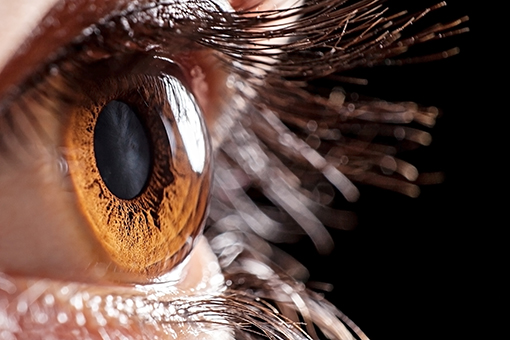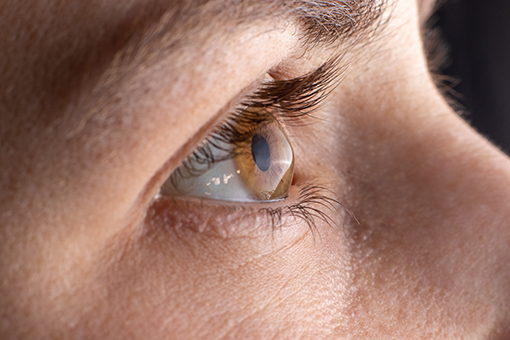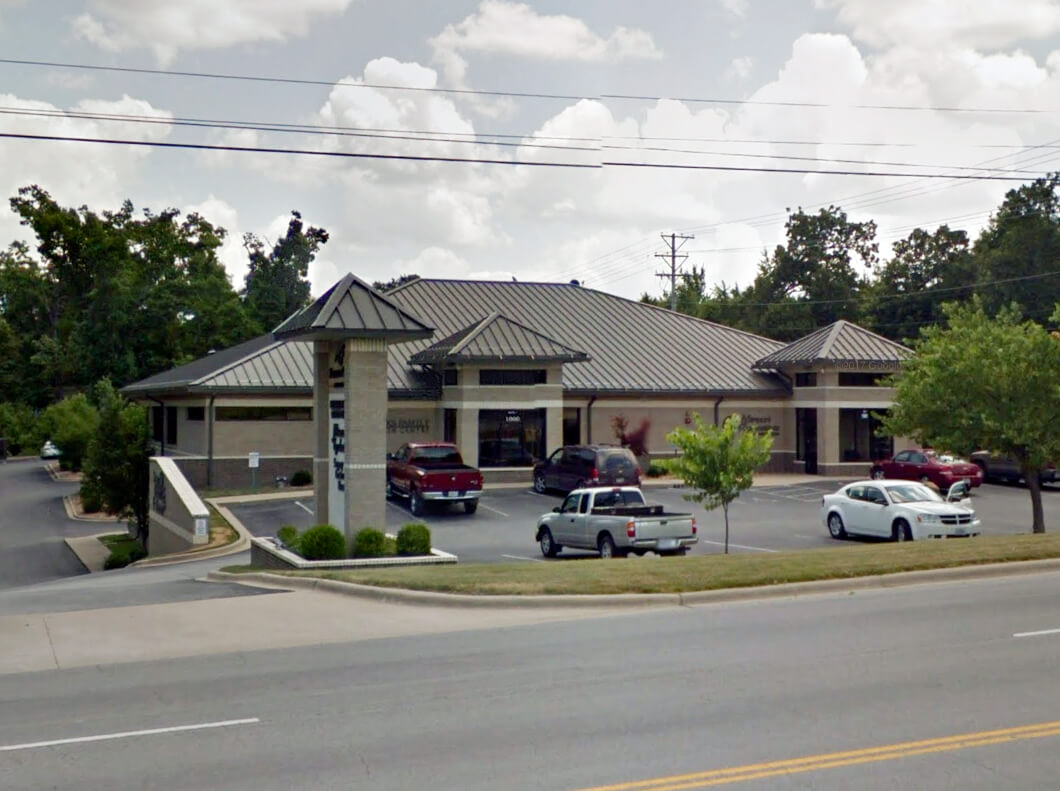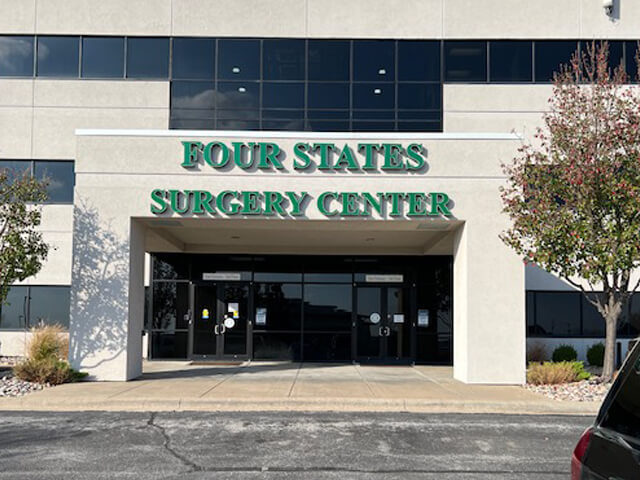Corneal Transplant

A corneal transplant may be necessary for patients with damaged or diseased corneas. At the Surgery and Laser Centers of Missouri Eye Institute, we have been performing keratoplasty procedures in the Southwest Missouri region for over thirty years.
What is a Corneal Transplant?
A corneal transplant, called keratoplasty, is performed on a damaged or diseased cornea. The cornea may be scarred or swollen, affecting your ability to see clearly.
When you have a corneal transplant, the diseased cornea is replaced with a new, healthy cornea. A healthy cornea comes from a human donor who chooses to donate their corneas after their death.
All corneas used in corneal transplants are extensively vetted and tested to ensure they are healthy and safe to use during transplantation.
Why is Having a Corneal Transplant Necessary?
A corneal transplant may become necessary due to eye disease or injury that damages the cornea, like:
Keratoconus
Keratoconus is an eye condition that occurs when the cornea is cone-shaped instead of dome-shaped. When the cornea is an irregular shape, it affects vision and gradually worsens over time.
Eye Infection
An eye infection may cause scarring to the cornea, leading to visual impairment. Injuries to the cornea may also cause damage.
Fuchs’ Dystrophy
With Fuchs’ dystrophy, cells in the cornea’s inner layer do not work as they should. Fluid builds up in the cornea, causing it to swell and affecting your ability to see as it gradually worsens.
Previous Eye Surgery that Damaged the Cornea
If you’ve had previous eye surgeries that damaged the cornea, this may make a corneal transplant necessary. Your vision may be irreparably altered due to previous damage during the surgery.
How Do I Know if I Need a Corneal Transplant?
Only an eye doctor can determine if you need a corneal transplant. However, if you’ve suffered severe damage to your cornea that contact lenses or laser procedures cannot treat, your ophthalmologist may recommend a corneal transplant to treat the underlying cause of the corneal damage.
If you need a corneal transplant, you’ll be placed on a transplant list with the Eye Bank. The Eye Bank will notify our office once suitable donor tissue is available.
We will then schedule your transplant procedure shortly after. Corneal transplants are usually performed as outpatient procedures. When you’re placed on the transplant list, you must leave phone numbers with our office so we can always reach you.
What Kind of Corneal Transplant Do I Need?

At the Surgery and Laser Centers of Missouri Eye Institute, we offer several corneal transplant options, varying from full or partial transplantation of the cornea. Your ophthalmologist may recommend one of the following corneal transplant options, depending on the severity of damage to the cornea:
Full Thickness Corneal Transplants-Penetrating Keratoplasty (PKP)
A full thickness corneal transplant or penetrating keratoplasty (PKP) means that your entire cornea needs replacing. This is necessary if both the front and inner corneal layers are damaged.
During a penetrating keratoplasty corneal transplant, you’ll have the entire diseased or damaged cornea removed. After removing your original cornea, it’s replaced with a clear donor cornea sewn to take its place.
There is a longer recovery period associated with penetrating keratoplasties. It may take patients a year or more to achieve full vision after the procedure.
Partial Thickness Corneal Transplants
For patients with only damage to the front and middle layers of the cornea, a partial thickness corneal transplant is necessary. There are several kinds of partial thickness corneal transplants.
Descemet’s Stripping Endothelial Keratoplasty (DSEK)
Descemet’s stripping endothelial keratoplasty (DSEK) is a procedure that removes the damaged endothelial cells and Descemet’s membrane. It only involves replacing the cornea’s innermost layer and helps pump fluid out of the cornea.
After removing the endothelial cells and Descemet’s membrane, they are replaced with a partial thickness graft. The partial thickness graft includes a donor endothelium and Descemet’s membrane. Your surgeon will create a small incision to perform the procedure through.
The graft will be folded or rolled before being placed in the eye. An air bubble holds the graft in position before it adheres. Descemet’s stripping endothelial keratoplasty uses far fewer sutures. Many patients start seeing visual improvements in as little as a week, with most visual improvement coming over the next four to six months.
Descemet’s Membrane Endothelial Keratoplasty (DMEK)
A Descemet’s membrane endothelial keratoplasty (DMEK) removes the Descemet’s membrane and endothelium. During DMEK, only a thin layer of cells is replaced to decrease rejection rates and allow faster patient visual recovery.
After removing Descemet’s membrane and the endothelium, the donor endothelium and Descemet’s membrane are transplanted. Your surgeon will create a clear corneal incision and remove the recipient endothelium and Descemet membrane.
The donor graft is put into an inserter to gently unroll the graft before using a bubble in the anterior chamber. The bubble will help adhere the graft to the cornea during recovery.
The air bubble will gradually disappear over 3-5 days and completely disappear 5-7 days after the procedure. Many patients start noticing their best vision about a month after undergoing Descemet’s membrane endothelial keratoplasty.
Learn more about corneal transplants and which one your ophthalmologist recommends by requesting an appointment at the Surgery and Laser Centers of Missouri Eye Institute in Springfield, MO.











